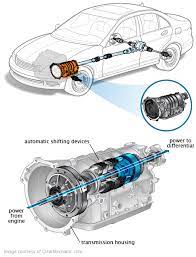Why Is My Car Overheating, and How Can I Prevent It?
Common Causes of Car Overheating
- Coolant Leaks:
A low coolant level due to leaks in the system can lead to overheating. Check for visible leaks under your car, and if you see green or orange fluid, it's a sign of a coolant leak.
- Faulty Thermostat:
The thermostat regulates the flow of coolant through the engine. A malfunctioning thermostat can cause the engine to overheat by not allowing coolant to circulate properly.
- Radiator Problems:
A damaged or clogged radiator can't effectively cool the engine. Over time, a buildup of debris or corrosion can hinder its performance.
- Faulty Water Pump:
The water pump is responsible for circulating coolant throughout the engine. A failing water pump can result in insufficient coolant circulation, leading to overheating.
- Blocked Radiator Fins:
Dirt, debris, and bugs can accumulate on the radiator's exterior, blocking airflow. This reduces the radiator's ability to dissipate heat, causing the engine to overheat.
- Coolant Issues:
Using the wrong type of coolant or neglecting regular coolant changes can lead to overheating problems. Always use the coolant recommended for your vehicle and follow the manufacturer's maintenance schedule.
- Serious Engine Problems:
In some cases, internal engine issues like a blown head gasket or a cracked cylinder head can cause overheating. These problems often require professional attention.
Preventing Car Overheating
Now that we've discussed the common causes
of car overheating, let's look at some preventive measures you can take:
- Regular Maintenance:
The best way to prevent overheating is to adhere to your car's maintenance schedule. This includes regular coolant changes, radiator flushes, and inspections by a certified technician.
- Monitor the Temperature Gauge:
Monitor your vehicle's temperature gauge while you're on the road. If it starts to creep into the "hot" zone, pull over safely and turn off the engine to prevent further damage.
- Check for Leaks:
Periodically inspect your vehicle for coolant leaks under the car. If you notice any, address them promptly to prevent overheating.
- Clean the Radiator:
Keep the radiator clean by removing debris and bugs from its fins. You can do this with a gentle stream of water or a soft brush.
- Replace the Thermostat:
If your thermostat is old or malfunctioning, consider replacing it as part of your routine maintenance.
- Inspect Hoses and Belts:
Ensure that coolant hoses and drive belts are in good condition.
Why Choose ACR-Auto Car Repair as Your Multi-BrandCar Service Center
When it comes to maintaining and servicing
your vehicle to prevent overheating and other issues, ACR-Auto Car Repair is
your trusted partner. Here's why:
- Expert Technicians:
ACR-Auto Car Repair has a team of experienced technicians who are skilled in diagnosing and servicing multi-brand vehicles.
- Quality Service:
They prioritize the quality of service to ensure your car stays in excellent condition and runs smoothly.
- Convenient Locations:
ACR-Auto Car Repair has service centers conveniently located, making it easy to find a "car service center near me" whenever you need it.
- Customer Satisfaction:
ACR-Auto Car Repair is committed to providing exceptional customer satisfaction, and they work diligently to get your vehicle back on the road in top shape.
Conclusion
Car overheating can be a stressful and costly
problem, but with proper preventive measures and timely maintenance, you can
avoid this issue. Remember to monitor your car's temperature gauge, address
coolant leaks promptly, and trust ACR-Auto Car Repair as your go-to multi-brand car service center for reliable, high-quality service. By taking these steps,
you can enjoy worry-free driving and extend the life of your vehicle.



Comments
Post a Comment